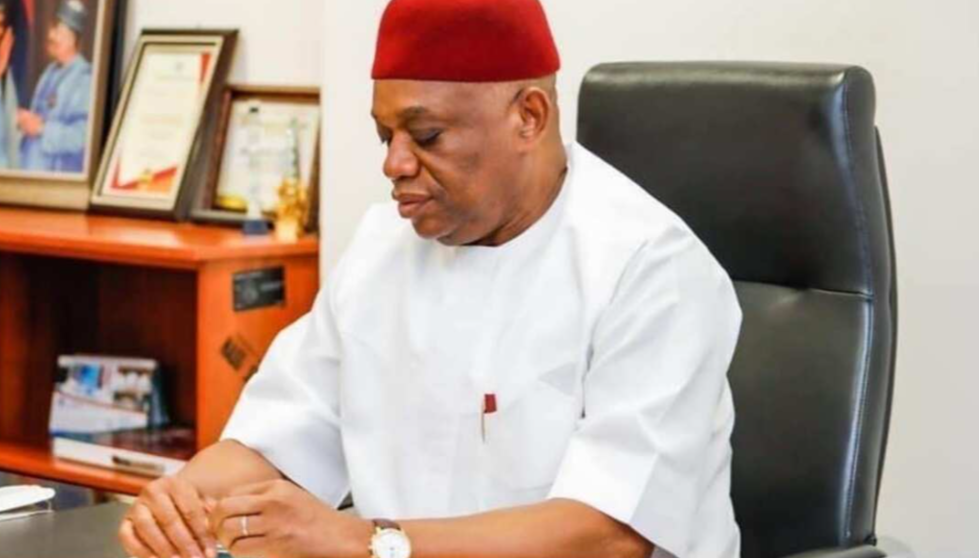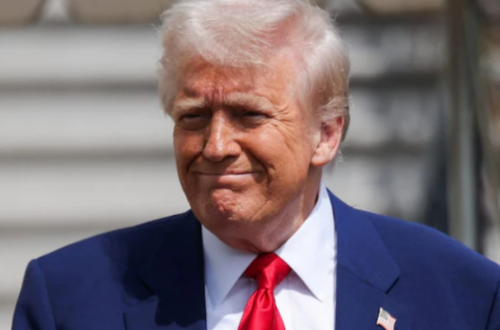
In Nigeria’s long, unending war against corruption, some of the most high-profile cases involve former state governors.
These individuals, once entrusted with public resources, were accused of embezzling billions of naira.
Yet, years later, many of them walk free. This article revisits the cases of five former governors whose corruption charges either fizzled out or were overturned, allowing them to return to public life or retire quietly.
1. Murtala Nyako – Former Governor of Adamawa State
Murtala Nyako, who governed Adamawa State from 2011 to 2015, was dragged into court alongside his son, Abdulaziz, over a ₦29 billion fraud case. The EFCC filed a 37-count charge against them and others, including companies linked to them—Blue Opal Ltd, Tower Assets Management Ltd, and Crust Energy Ltd, alleging criminal conspiracy, stealing, abuse of office, and money laundering.
The legal journey began in July 2015 but had to restart in September 2016 due to the death of the initial judge, Evoh Chukwu. In July 2021, a federal high court in Abuja reminded the Nyakos that they had questions to answer. Still, after the case resumed in March 2024 and both father and son pleaded not guilty, the trial was merely adjourned to May 10 and 13, 2024, and since then, there has been silence.
2. Sule Lamido – Former Governor of Jigawa State
Sule Lamido served as governor of Jigawa, one of the poorest states in Nigeria, from 2007 to 2015. He was accused of collecting kickbacks from companies that secured state contracts under his administration, with the EFCC filing 37 money laundering charges amounting to ₦1.35 billion against him and his sons, Aminu and Mustapha, in 2015.
After eight years of hearings, adjournments, and motions, the Court of Appeal threw out the case in July 2023, ruling that it should have been tried in Jigawa and not Abuja. Rather than transfer the case, the court dismissed it outright. In August 2023, the EFCC asked the Supreme Court to revive the case, arguing that a venue error shouldn’t kill an entire trial, but the appeal was rejected. Today, Lamido remains a free man.
3. Danjuma Goje – Former Governor of Gombe State)
Danjuma Goje, governor of Gombe from 2003 to 2011, was accused in 2011 of embezzling ₦25 billion during his time in office. The EFCC dragged him to court, and the trial began in 2012. Protesters, especially students, even took to the streets demanding justice. However, after years of legal wrangling, the case stalled.
The turning point came in June 2019, shortly after Goje agreed to withdraw from the Senate President race in support of President Buhari’s preferred candidate. The EFCC handed the case to the Attorney-General’s office, which shortly thereafter invoked its constitutional power to withdraw the charges. Although the EFCC had already presented 25 witnesses and submitted evidence, the Attorney-General’s action effectively terminated the case, and Goje walked away unscathed.
4. Orji Uzor Kalu – Former Governor of Abia State
In 2007, the EFCC accused Orji Uzor Kalu, former Abia governor (1999–2007), and his finance director, Jones Udeogu, of misappropriating ₦7.65 billion. After 12 years of trial delays, the court finally convicted them in 2019. Kalu received a 12-year sentence, and Udeogu got 10 years.
But the victory was short-lived. In May 2020, the Supreme Court overturned the judgment, citing that the trial judge had been promoted to the Court of Appeal before delivering the ruling, rendering the verdict invalid. The Supreme Court ordered a retrial.
However, when the EFCC attempted to restart the case in March 2024, they were blocked by the Federal High Court, citing missing documentation. The appeal was dismissed again. As it stands, Kalu remains a sitting senator, free and active in politics, while the EFCC struggles to reorganise its paperwork.
5. Peter Odili – Former Governor of Rivers State)
Former Rivers State Governor Peter Odili, who served from 1999 to 2007, has long been under the spotlight for alleged corruption over ₦ 100 billion but has never faced prosecution. A 2007 court injunction barred the Economic and Financial Crimes Commission (EFCC) from investigating or arresting him.
That perpetual injunction, granted by the Federal High Court in Port Harcourt, also prevented any probe into Rivers State’s finances during Odili’s tenure. For nearly two decades, this legal barrier effectively shielded him from scrutiny, making his case one of the most controversial in Nigeria’s anti-corruption history.
In a recent development, the EFCC sought permission from the Court of Appeal to challenge the original ruling, even though the appeal period had long expired. The appellate court granted their request, prompting the Rivers State Attorney General and the Speaker of the House of Assembly to appeal to the Supreme Court.
However, a five-member panel led by Justice John Okoro dismissed both appeals, stating that the Supreme Court was not the appropriate forum at this stage. The withdrawal of the appeals means the EFCC now has the green light to contest the injunction and possibly reopen the case, though to date, Odili has never been tried or convicted.
Technical loopholes, such as dismissals over jurisdictional errors, often cause serious corruption charges to fizzle out. Add to that a judicial system riddled with endless adjournments, it’s no surprise that some cases drag on for nearly a decade. Why should any corruption trial take nine years to resolve?
Nonetheless, Nigeria’s anti-corruption struggle is far from over, but the pattern of impunity in high-level political cases undermines public trust in the justice system.


)
)




